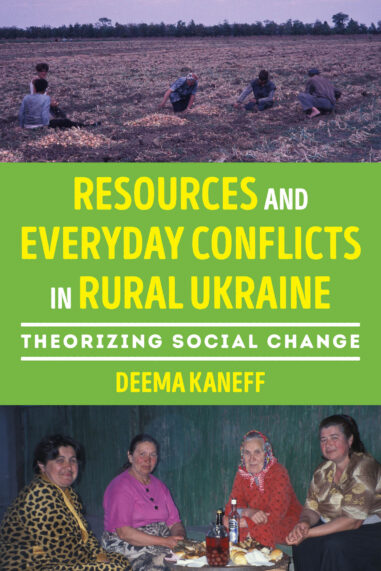
Paperback $35.00
Also available in Hardcover
Request Exam or Desk Copy. Request Review Copy
Resources and Everyday Conflicts in Rural Ukraine
Theorizing Social Change
When the Bulgarian minority in Bessarabia was exposed to the dual forces of globalizing political economy and the nationalizing Ukrainian state, life-worlds and resource use changed radically. Kaneff’s study is both an important addition to the literature on postsocialist transformation and, with its sophisticated conceptualization of resources, a truly original contribution to the analysis of social change generally.

